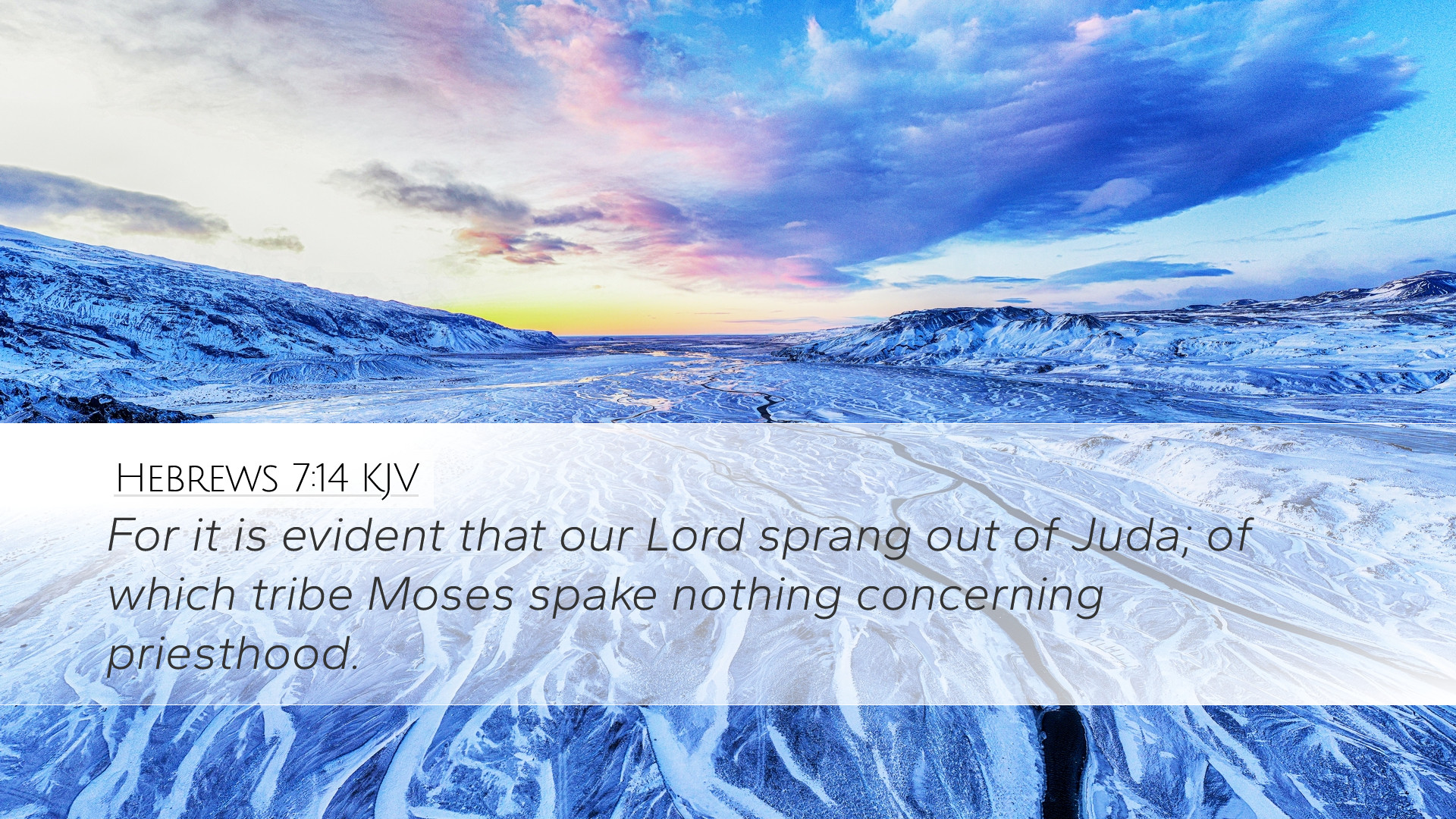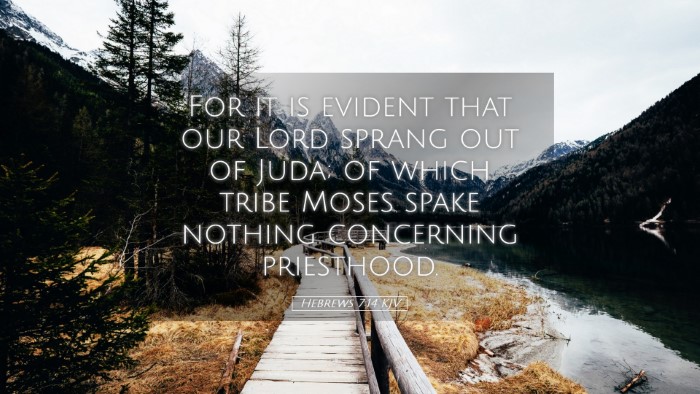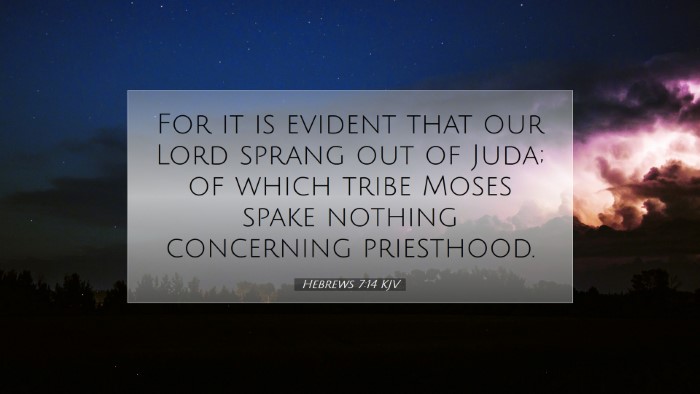Commentary on Hebrews 7:14
Verse: Hebrews 7:14 - "For it is evident that our Lord sprang out of Judah; of which tribe Moses spake nothing concerning priesthood."
Introduction
The epistle to the Hebrews presents a unique theological perspective on the person and work of Christ. One of the pivotal themes in the book is the superiority of Christ’s priesthood when compared to the Levitical priesthood. Hebrews 7:14 specifically points out that Jesus originated from the tribe of Judah, a detail that bears profound significance in the context of the Jewish understanding of priesthood.
The Significance of Judah
In this verse, the author underscores the fact that Jesus, referred to as "our Lord," comes from the tribe of Judah. This is noteworthy because:
- Historical Context: The tribe of Judah was not traditionally associated with priesthood; that privilege belonged to the tribe of Levi. Thus, the mention of Judah emphasizes a departure from the established Levitical order.
- Messianic Prophecy: Judah holds a prominent place in Old Testament prophecies regarding the Messiah. Jacob's blessing in Genesis 49:10 implies that the scepter—and with it, royal authority—would not depart from Judah, pointing towards Jesus as the fulfillment of these prophecies.
Insights from Commentators
Matthew Henry
Matthew Henry highlights the remarkable transition from the Levitical priesthood to the priesthood of Christ. He notes that while the Levitical priests were established to mediate between God and man, Jesus, coming from Judah, signifies that His priesthood is not based on ancestral lineage but rather on His divine appointment and intrinsic qualifications. Henry emphasizes that this new order brings a lasting and perfect redemption.
Albert Barnes
Albert Barnes elaborates on the phrase "our Lord sprang out of Judah" by emphasizing the purpose of Jesus's lineage. He states that the choice of Judah as the source of Christ's lineage indicates that God's plan is often beyond human expectations and traditional structures. Barnes argues that this change was deliberate, showing that God can act outside established norms to fulfill His redemptive purposes. The fact that Moses spoke nothing regarding the tribe of Judah in relation to priesthood further emphasizes the uniqueness of Christ's role as our high priest.
Adam Clarke
Adam Clarke focuses on the historical implications of Christ's lineage. He discusses the implications of the Torah's silence about Judah's role in priesthood, framing this as an intentional oversight in light of Christ’s superior priesthood. Clarke notes that this indicates the ultimate plan of God, demonstrating that the priesthood of Jesus was preordained, transcending human origin and limitations. Clarke adds that the disciples’ understanding of this truth would be revolutionary, instilling in them the foundation of faith that Jesus is our eternal high priest, established not by law but by promise.
Theological Implications
Hebrews 7:14 serves as a cornerstone for understanding several essential theological concepts pertinent to Christianity:
- Superiority of Christ: The verse reinforces the theme of Christ’s superiority as the eternal high priest, which is a crucial aspect of soteriology.
- New Covenant Theology: The transition from a Levite priesthood to that of Christ represents the establishment of the new covenant, where access to God is granted through Jesus rather than through ritualistic law.
- Fulfillment of Prophecy: Recognizing Jesus's lineage affirms the fulfillment of prophetic scripture, enhancing the reliability of biblical prophecy and God’s promises throughout the ages.
- Understanding of Grace: The priesthood of Christ as coming from Judah highlights the theme of grace, where divine favor is granted not according to lineage or works but through faith in the Redeemer.
Conclusion
Hebrews 7:14 encapsulates a pivotal truth in Christianity: that Jesus Christ, although of the tribe of Judah and not of Levi, represents a new and superior priesthood that transcends human institutions and laws. By drawing from both Matthew Henry, Albert Barnes, and Adam Clarke, we appreciate the depth of this declaration and its implications for faith, obedience, and our understanding of who Christ is. This verse calls readers—pastors, students, theologians, and scholars alike—to deepen their understanding of the role of Christ as our high priest and to appreciate the richness of God's redemptive plan throughout history.


